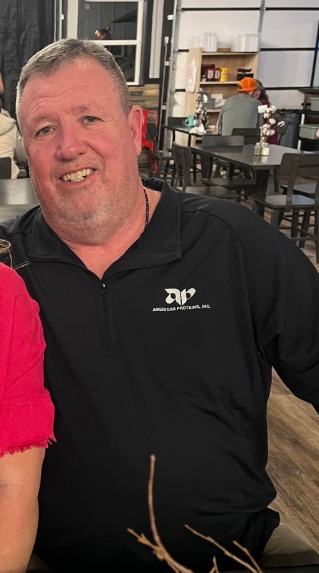Massacre on Calm Waters: The Tragedy That Shook Smith Lake
Before the sun dared to rise over the still, glassy surface of Smith Lake, the darkness shattered—not with light, but with a scream of tearing metal and a thunderous crash that echoed across the water. Two boats collided at high speed, and in the eerie silence that followed, the lake bore witness to one of its deadliest tragedies in recent memory.
By the time first light touched the water, three lives had already slipped beneath its depths.
Joey Broom, 58, a lifelong local and seasoned boater, died instantly. His modest fishing vessel was no match for the bass boat that struck it—an instrument of speed and precision turned deadly projectile. Witnesses describe the sound as something between a freight train and a lightning strike. By the time nearby residents reached the shoreline, all they could see was debris and drifting wreckage.
The bass boat belonged to Flint Davis, a name well-known on the professional angling circuit. Davis, 34, had been training for an upcoming regional tournament—one he’d been favored to win. But that morning, he wasn’t chasing trophies; he was clawing his way out of the freezing black water, bloodied and broken, his cries the only confirmation of life amid the chaos.
“I thought it was a log at first, a big one,” Davis later said, barely audible through a cracked voice and fractured ribs. “Then it was too late. I never saw them until… until it was over.”
Joey Broom wasn’t alone on the lake that morning. Two others were aboard with him—longtime fishing friends who had made it a Saturday tradition to cast lines before the sunrise. As of now, their names have not been released, but neither has surfaced since the crash. Dive teams, aided by sonar and underwater drones, have been scanning the lake’s depths around the clock, hoping against hope for a miracle—or at least, for answers.
The calmness of Smith Lake—once a comfort to locals and visitors alike—now feels haunted. Yellow tape flutters from the docks like prayer flags. Every lapping wave feels like an echo of what happened here, a silent cry for justice, for closure.
“This wasn’t just an accident,” said Marla Jenkins, Joey’s niece, standing beside a growing lakeside memorial of candles, flowers, and folded fishing caps. “Someone was reckless. Someone made a choice that ended lives.”
Preliminary investigations support what many are already whispering—excessive speed, failure to follow boating safety protocol, and possibly even impairment. The lake, typically serene at that hour, had become a battleground of human error and high-powered machinery.
But beyond the investigation and the headlines, it’s the families who are left with the deepest wounds. A daughter without a father. A wife without a husband. Friends missing friends. An entire town left to reconcile the surreal with the sorrowful.
The Department of Natural Resources has vowed a full inquiry, and local lawmakers are already calling for tighter regulations on recreational boating, especially in low-visibility hours. Curfews, speed restrictions, and mandatory navigation lights are now central to the debate.
Still, no law can reverse what happened before dawn that morning.
For those who knew Joey Broom, he was more than a name on a police report. He was a storyteller, a man who could catch catfish with a bent paperclip, and someone who always brought extra sandwiches to share. His loss ripples outward, touching not just blood relatives but an entire lakeside community that’s now missing a piece of itself.
As the sun finally rose over Smith Lake that fateful day, it cast light on a nightmare. And now, as the sun sets night after night, it does so over a lake that holds not just fish and memories—but ghosts.
The water will calm again. The wind will return. But Smith Lake won’t forget.
Not this time.

Leave a Reply